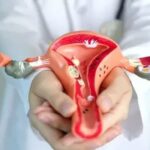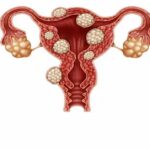Infertility is a condition that occurs as a result of difficulties encountered in the process of having a child. Infertility is diagnosed when pregnancy cannot be achieved despite sexual intercourse for a year. This condition can be caused by both women and men. Today, modern medicine, infertility treatment It offers many effective methods for.
İnfertilite Tedavisi Kimler İçin Uygundur?
Çiftlerin çocuk sahibi olamaması, yaşam kalitesini etkileyen yaygın bir durumdur. Pek çok çift, doğal yolla gebelik elde edemediğinde farklı nedenlerle karşılaşabilir. Kadın ve erkek kaynaklı faktörler bu duruma yol açabilir. Hormonal düzensizlikler, yumurtlama sorunları veya sperm sayısında düşüklük en sık görülen nedenler arasındadır.
Bu durumlarda tedavi devreye girer. Çiftin yaşı, sağlık geçmişi ve infertilite nedeni göz önüne alınarak plan yapılır. Amaç, gebelik şansını artırmak ve sağlıklı bir şekilde çocuk sahibi olmayı sağlamaktır. Hormonal tedavi, tüp bebek (IVF) ve intrauterin inseminasyon tedavi seçeneklerindendir. Süreç sabır ve düzenli takip gerektirir. Tüm bu adımlar tamamlandığında, başarılı sonuçlar almak için infertility treatment is applied.
İnfertilite sorunları hem kadın hem erkek kaynaklı olabilir. Kadınlarda yumurtlama problemleri, tüplerin tıkanıklığı veya rahim sorunları etkili olur. Erkeklerde ise sperm sayısı ve hareketliliği önem taşır. Çiftlerin her iki tarafının da detaylı değerlendirilmesi doğru tanı ve tedavi için kritik öneme sahiptir.
Ciddi veya uzun süren durumlarda cerrahi müdahale gerekebilir. Ancak çoğu çift, uygun yöntemler ve düzenli takip ile gebelik şansını artırabilir. Infertility treatment, doğru yöntem ve sabır ile başarı oranını yükseltir. Düzenli doktor kontrolleri, yaşam tarzı düzenlemeleri ve tedaviye uyum, sürecin başarılı geçmesini sağlar. Tedavi süreci, çiftin fiziksel ve psikolojik sağlığı açısından dikkatle planlanmalıdır.
İnfertilite Tedavisi Hangi Durumlarda Uygulanır?
Infertility treatment, çocuk sahibi olamayan çiftlerin gebelik şansını artırmak için uygulanır. Amaç, doğal yolla gebelik elde edemeyen çiftlerde üreme sürecini desteklemektir. Tedavi, çiftin yaşına, sağlık geçmişine ve infertilite nedenine göre planlanır. Kadın veya erkek kaynaklı sorunlar tedavi yöntemini belirler.
Kadınlarda infertiliteye yol açan durumlar çeşitlidir. Yumurtlama sorunları, tüplerin tıkanıklığı veya rahim problemleri en sık karşılaşılan nedenler arasındadır. Hormonal dengesizlikler ve polikistik over sendromu da gebeliği zorlaştırabilir. Bu durumlarda uygun tedavi ve düzenli takip, gebelik şansını artırır.
Erkeklerde ise en yaygın neden sperm sayısı ve hareketliliğinin düşük olmasıdır. Genetik faktörler, enfeksiyonlar ve yaşam tarzı sperm kalitesini etkiler. Erkeklerin de değerlendirilmesi, doğru tanı ve tedavi için kritik önem taşır.
Tedavi seçenekleri arasında hormonal tedavi ve intrauterin inseminasyon vardır. Tüp bebek (IVF) de bir diğer yöntemdir. Hafif vakalarda ilaç tedavisi yeterli olabilir. Daha ileri vakalarda ise cerrahi müdahale veya ileri üreme teknikleri gerekebilir. Tedavi süreci sabır ve düzenli takip gerektirir.
İnfertilite Tedavisi Yöntemleri Nelerdir?
Çocuk sahibi olamayan çiftler için farklı nedenler söz konusu olabilir. Kadınlarda hormonal dengesizlikler, yumurtlama sorunları veya tüplerin tıkanıklığı sık görülür. Erkeklerde ise sperm sayısı ve hareketliliği düşebilir. Her iki tarafın da değerlendirilmesi, doğru tanı ve tedavi için önemlidir.
İlk adım, çiftin detaylı şekilde muayene edilmesidir. Kan testleri, hormon ölçümleri ve ultrason ile kadın üreme sistemi incelenir. Erkekte sperm analizi yapılır. Sonuçlar tedavi planının temelini oluşturur. Hafif sorunlar, basit yaşam tarzı değişiklikleri veya ilaç tedavisi ile çözülebilir.
Farklı durumlarda infertility treatment uygulanır. Hormonal tedaviler, yumurtlamayı düzenler ve gebelik şansını artırır. İntrauterin inseminasyon (IUI) ve tüp bebek (IVF) yöntemleri de sık kullanılan seçeneklerdir. Bazı vakalarda cerrahi müdahale gerekebilir. Tedavi süreci sabır ve düzenli takip gerektirir.
Tedavi sırasında yaşam tarzı değişiklikleri de önemlidir. Sağlıklı beslenme, stres kontrolü ve düzenli egzersiz tedavi başarısını artırır. Sigara ve alkol tüketimi sınırlandırılmalıdır. Çiftlerin birbirine destek olması, sürecin psikolojik yükünü azaltır.
Başarılı bir tedavi için erken teşhis şarttır. Tedaviye erken başlamak, gebelik şansını yükseltir. Düzenli doktor kontrolleri ve önerilen egzersizler sürecin verimliliğini artırır. Her adım dikkatle uygulanmalı ve sabırla takip edilmelidir.
İnfertilite Tedavisi Sonrası Süreç Nasıldır?
Çocuk sahibi olamayan çiftler için tedavi süreci hem fiziksel hem de duygusal olarak önemlidir. Tedavi öncesinde hem kadın hem erkek muayene edilir. Hormon testleri ve ultrason ile durum değerlendirilir. Bu aşama, doğru tanı ve tedavi planının oluşturulması için kritik öneme sahiptir. Tedavi süreci, sabır ve düzenli takip gerektirir.
Tedavi tamamlandıktan sonra, gebelik elde edilebilirse süreç farklı ilerler. Bu aşamada infertility treatment sonrası çiftlerin vücutlarının gebeliğe uyum sağlaması önemlidir. Düzenli kontroller yapılır ve doktor, olası komplikasyonları takip eder. Psikolojik destek de sürecin önemli bir parçasıdır. Egzersiz ve sağlıklı beslenme, vücudun toparlanmasına yardımcı olur.
Eğer gebelik oluşmamışsa, tedavi sonrası süreç tekrar değerlendirilir. Eksik kalan adımlar gözden geçirilir ve gerekiyorsa yeni tedavi planı oluşturulur. Tekrar denemeler yapılabilir. Sabırlı olmak ve tedaviye uyum sağlamak, başarı şansını artırır. Tedavi süreci kişiye özel planlanmalıdır.
Çiftler, tedavi sürecinde birbirine destek olmalıdır. Stres yönetimi ve yaşam tarzı değişiklikleri, sürecin verimliliğini artırır. Doktorun önerdiği takip programına uyulması, olası komplikasyonları önler. Tedavi ve takip süreci dikkatli planlandığında, gebelik şansı en üst düzeye çıkar.
Sonuç olarak, tedavisi sonrası süreç hem fiziksel hem psikolojik destek gerektirir. Düzenli kontrol, sağlıklı yaşam ve doktor önerilerine uyum, sürecin başarıyla tamamlanmasını sağlar. Her çiftin iyileşme süreci farklı ilerleyebilir; sabırlı olmak ve doğru adımları takip etmek kritik öneme sahiptir.








